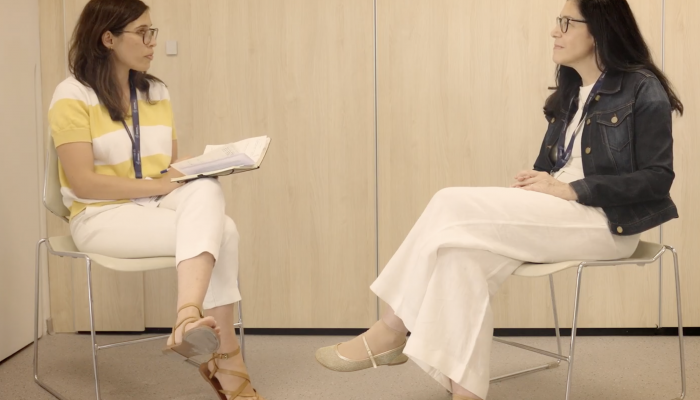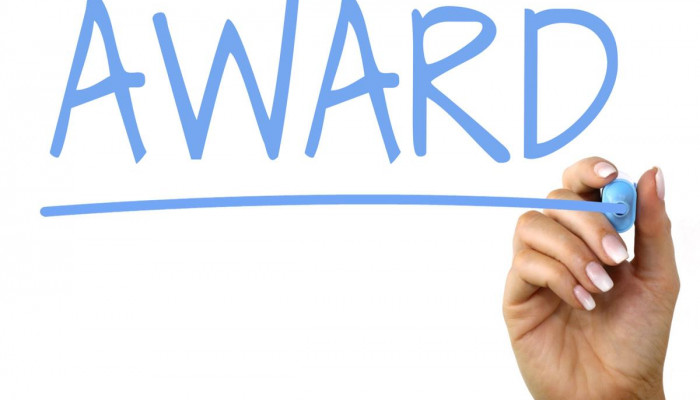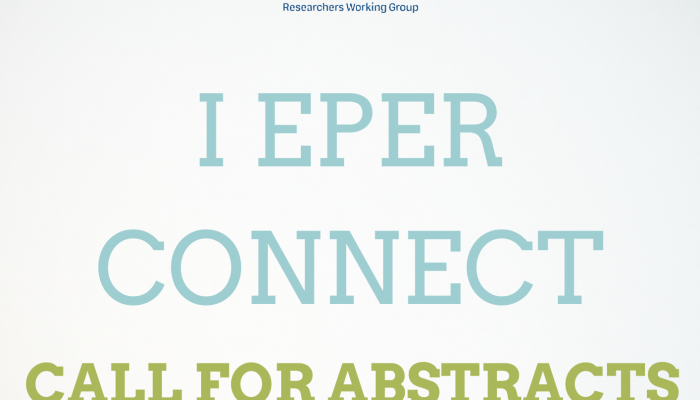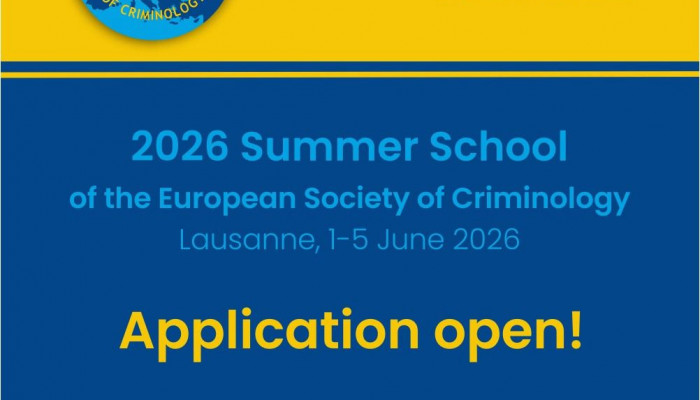New ECOH interview: Vania Ceccato
Vania Ceccato is a Brazilian-Swedish Geographer and a Professor at the Department of Urban Planning and Environment, School of Architecture and the Built Environment, KTH Royal Institute of Technology, Stockholm, Sweden.
Recent Blog Posts
Latest Regular Issue
Recent Issues
Presidential address, by Anna Maria Getoš-Kalac
Logos of Criminology: Harm, Conflict, and Academic Freedom
Eurocrim2025 - Conference report
The 25th edition of the annual conference of the European Society of Criminology (ESC) was special for several reasons
Nikki Rutter, Recipient of the 2025 ESC Young Criminology Award
Filial harm is often referred to as a “hidden” form of harm
The 2025 ESC awards
In addition to the award attributed to Nikki Rutter during the 25th annual conference of the ESC, several other awards were granted in Athens.
Special feature from the 25th anniversary of the ESC: Riding with Kings and Queens: a Squire’s Chronicle of an Unlikely Journey
I found myself embarked on a journey I could never have foreseen
Special feature from the 25th anniversary of the ESC: The Futures of European Criminology?
What does the future of European Criminology look like in your field over the next 25 years?
ESC Working Group on Teaching and Learning in Criminology
The WG-TLC aims to advance Criminology by focusing attention on curriculum design, instructional methods, digital transformation, professional development, and educational research.
Criminology is lagging behind
It is essential to generate evidence that is reproducible and replicable – especially in Criminology
Editorial Notes: on Blindness
“the only thing more terrifying than blindness is being the only one who can see”
Editorial notes: and the big event is here!
The ESC’s 25th anniversary is upon us, and we are celebrating it in the most perfect place: Athens
Presidential Address, Michele Burman (2/2025)
the forthcoming ESC 25th anniversary conference will give further opportunity to reflect more deeply on the value of Criminology across Europe to enrich scholarly understanding and inform policy and public discourses on crime and justice.
Secretariat report, 2024
The year 2024 marked a period of adjustment for the ESC, with membership settling at 1,560 members following the unprecedented peak of 2,175 members in 2023.
Criminology in Europe - Criminology in Greece: a Discipline Taught More Than Practised
There is an urgent need for more academic dialogue, intradisciplinary discourse, and goal setting within the field to enhance both its impact and development, particularly in relation to research
Consolidating Community and Excellence in European Criminology: Second Edition of the ESC Summer School
From 9 to 13 June 2025, the second edition of the ESC Summer School took place at the University of Lausanne
In memoriam: Marc Cools
On Tuesday, 10 June 2025, Professor Marc Cools passed away in Antwerp, Belgium
Working Group reports: European Sourcebook Working Group (2020–2025)
The European Sourcebook Working Group (ESWG) has successfully maintained its mission of producing comprehensive pan‑European crime and criminal justice statistics during the 2020–2025 period.
Editorial notes: the 25hth anniversary of the ESC
The 2025 annual conference will be especially important in the life of the European Society of Criminology
Presidential address, Michele Burman: 25 years of the ESC
Though a daunting task, criminological knowledge should be particularly suited to making some sense of the current socio-political situation, of its challenges, of the possible courses and directions that may be taken and of their consequences.
EUROCRIM 2025, Logos of Crime and Punishment
Logos of Crime and Punishment, Athens, 3-6 September
Working Group report: WG-EXTREME
The European Working Group on Radicalization, Extremism, and Terrorism
Narrative Criminology Working Group
The European Society of Criminology working group was established in 2016 with the aim of stimulating research and sharing knowledge in the field of Narrative Criminology
The European Society of Criminology Postgraduate and Early-Stage Researchers (EPER)
Meet the new co-chairs of EPER!
EDITORIAL NOTES: A throwback to 1999
Today, 25 years later, many of the main challenges we face were somehow emerging when the ESC was being prepared. T
25th anniversary of the European Society of Criminology: Call for Memories
Call for Memories
Laudatio for Per-Olof H. Wikström, for the ESC European Criminology Award 2024
It was groundbreaking that Per-Olof designed large- scale empirical research into the social ecology of crime and the interaction between people and places in the explanation of people’s crime propensities as well as the role of morality in their actions.
ESC YOUNG CRIMINOLOGY AWARD RECIPIENT
Rethinking Peer Influence and School-Based Aggression
EUROPEAN CRIMINOLOGY ORAL HISTORY (ECOH) PROJECT - Call for new Chair
Call for new Chair - Expressions of Interest Welcome
THE ESC SUMMER SCHOOL
My Adventure from Research Insights to Impact and Everything in Between
Editorial notes: reflections on the silly season
As editor of the ESC newsletter, there are numerous challenges in putting together the summer issue
Presidential address: European Criminology needs a European victimisation survey
European Criminology needs a European victimisation survey
In memoriam: Calliope Spinellis
Calliope Spinellis, a pioneering figure in modern Criminology in Greece, passed away on Sunday, June 30, 2024.
Criminology in Europe: Romanian Criminology
What the past and present struggles tell us about the future
The ESC European Criminology Oral History project (ECOH)
Narrating the story of the consolidation of European criminology
Working Group report Green Criminology European working group - GREEN
GREEN is the most recent ESC Working Group
Introducing CrimRxiv: A free open access service by and for criminologists
Open Access (OA) is a global movement that is gaining momentum
Bucharest, an emerging milestone for criminological research
„Bucharest, a city under construction. All the old and deserted slums have now metamorphosed into building sites on which monumental blocks are being erected. Our provincial boulevards of yesterday are mobilising at the edges and seeming to shrink in width, are growing vertiginously in height. The number of architects has become far too small. Not only that. Where yesterday there were maze-like streets, today we have huge squares criss-crossed by cars, trams and statues. In just a few years, Bucharest has become a half-western and presentable city.” (Ionescu, 1934)
IN MEMORIAM: Vincenzo Ruggiero
Vincenzo Ruggiero passed away in his adopted ‘home’ city of London on Saturday 2nd°February 2024 with his partner and his daughter at his side
Working Group Report: Gender, Crime and Justice Working Group
The Working Group °was conceived of as a collegiate space for encouraging °and supporting scholars °working in the area° of gender, crime and justice who may often be quite academically isolated in their home institutions.
Working Group Report: European Homicide Research Working Group
The European Homicide Research Working Group’s goal is to stimulate homicide research in Europe and to promote contact between researchers working on homicide studies in Europe and beyond.
Editorial notes (23,3)
The newsletter pulses with the ESC activities. It rhythms with the work of hundreds of people dedicated to expanding Criminology in Europe and elsewhere
Conference report: EUROCRIM2023, Florence
In 1817, Stendhal described an experience of intense heartbeat, confusion, fainting, and even hallucinations. These are documented psychosomatic reactions of tourists and visitors of Florence when beholding the fantastic architecture and artworks or when witnessing the extraordinary beauty of the place.
Laudatio of Prof. Dr. Uberto Gatti for the European Criminology Award of the European Society of Criminology
Uberto Gatti is more than all his service to Criminology
Jakub Drápal, ESC Young Criminology Award Recipient
Why it took so long to identify principles of sentencing multiple conviction offenders
Obituary: Malcolm Ward Klein (1930-2023)
His legacy includes a distinguished record of scholarship, institutions he fostered, and generations of scholars he influenced
Working group reports: European Network for Open Criminology (ENOC)
An ever-growing group of researchers concerned with the crisis of replicability argue for the creation and development of new ways of working
Working group reports: ESC Victimology Working Group
Objectives encompass promoting networking, facilitating the exchange of ideas, and encouraging research cooperation while advancing theoretical knowledge about victims and victimology.
Working Group Reports: ESC WG on Immigration, Crime, and Citizenship
A meeting point for collaboration and academic discussion
Dossier: Researching Green Criminology in Europe (3)
The number of Southern European researchers studying issues in green criminology is soaring
Note from the Editor-in-Chief and Editorial Team for the European Journal of Criminology
The last two years have been busy for the European Journal of Criminology
(past) Editorial notes
Criminology is still required to produce evidence on harm production, crime commission and victimisation, as well as to support, improve and assess crime control practices
(Past) Presidential address
Fear and crime. Developmental impressions from England & Wales and Germany
ESC Executive Secretariat Annual Report 2022
The 22nd Annual ESC meeting in Malaga, Spain had an unprecedented 1875 attendees, the most significant participation ever recorded at a Eurocrim conference and was coupled with a record number of ESC members
Laudatio of Michael Tonry for the 2022 Distinguished services to the ESC award
Tthe Jury considers that Prof. Michael Tonry has given very distinguished services to the ESC and, therefore, fully deserves that award.
Declaration of the Executive Board of the ESC concerning the war in Ukraine, 21 April 2022
The Executive Board of the European Society of Criminology declares its utmost concern at Russia’s aggression against Ukraine
Candidates to the ESC board, 2023: Michele Burman - Election of ESC President
Election of ESC President: Candidate profile: Michele Burman
Candidates to the ESC board, 2023: Michael Levi - Election of ESC President
Election of ESC President: Candidate profile: Michael Levi
Candidates to the ESC board, 2023: Anna Di Ronco, at-large board member
Candidate profile: Anna Di Ronco
Candidates to the ESC board, 2023: Mirza Buljubašić, at-large board member
Candidate profile: Mirza Buljubašić
Criminology in Europe: Birth and Development of Criminology in Italy
Italy, the birthplace of criminology, still contributes strongly to the development of this science.
Eurocrim Conference’s Evolution: Challenges and Solutions
Developments and innovations in the annual meetings
New publication alert
Stewart Field and Cyrus Tata (eds, 2023) ‘Criminal Justice and the Ideal Defendant in the making of Remorse and Responsibility’ (Oxford: Hart, Onati International Series in Law & Society
Working Group reports : ESC Thematic Working Group on Juvenile Justice (TWGJJ)
The TWGJJ will again have a strong presence at the conference
Working Group report: European Working Group on Quantitative Methods in Criminology (EQMC)
EQMC aims to facilitate the cooperation between researchers focusing on the development and application of quantitative methods in criminology
Dossier: Researching Green Criminology in Europe (2)
Humans, nature and the other animals: Developments in green criminology in Northern Europe
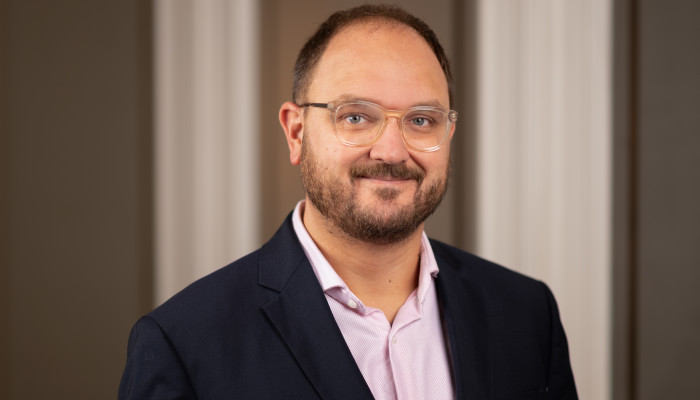
What is an editor?
How the role of editor allows being part of a project for the sake of commonalities, collectivities and shared endeavour
Laudatio of Prof. Dr. Michael Levi for the European Criminology Award of the European Society of Criminology
There are multiple reasons to explain why Michael Levi--or Mike, as we all know him--fully deserves the European Criminology Award of ESC
2022: ESC European Criminology Award acceptance speech
Criminology is a never-ending story
In Memoriam: Cristina Rechea Alberola, 1944-2022
by Rosemary Barberet, Raquel Bartolomé & Esther Fernández-Molina
Open Call for Associate Editors for the European Journal of Criminology
In recent years the European Journal of Criminology has seen a steep rise in submissions. To support an effective and efficient peer review process, Associate Editors (AEs) have become a key asset of our Editorial Team. We are currently seeking new AEs and are inviting applications.
Working Group reports - European Working Group on Organized Crime and Criminal Networks
New! European Working Group on Organized Crime and Criminal Networks was established and welcomes researchers interested in any organized crime-related topic
Working Group reports - ESC Rural Criminology Working Group
Following two years of restrictions, and the establishment of this Working Group in such difficult times, the chairs are overwhelmed by the success of the Working Group
Working Group reports - ESC Working Group on Crime, Criminal justice and COVID-19 pandemic
COVID-19 was a disruptor in many criminological fields, but, after the extraordinary momentum and the spike of academic studies, we should already consider the legacy and the evolution of the group
Working Group reports - Working Group on Restorative Justice
Restorative justice is a burgeoning field of study and practice. While it emerged primarily within the criminal justice setting over the last four decades, other applications can also be observed
Best Academic Article on Restorative Justice Prize
The winner of this year’s prize is Jennifer Llewellyn for her article published in The International Journal of Restorative Justice (Eleven).
Dossier: Researching Green criminology in Europe
Over the last ten years or so, green criminology has become an increasingly important theme
Working Group Report - European Working Group on Organisational Crime
EUROC’s last report was in early 2019 and despite the impact COVID caused in a variety of spheres, the EUROC working group did not lose its dynamics and its board continued working hard in maintaining its presence and activities in Europe and elsewhere.
Presidential Message
This year, finally we will have a real, ‘physical’ ESC conference!! If things stay as they are, we will not have to wear face-masks, we can sit together, we will flock from meeting room to meeting room. We will be able to have a beer, wine or other drink in the sultry Andalusian evenings, with friends, colleagues that we haven’t seen for much too long. The fact that this year we do not look at a two-dimensional screens and talk into cyberspace, but see each other three-dimensionally is by itself cause for joy.
ESC Executive Secretariat Annual Report 2021
In 2021, the European Society of Criminology (ESC) had 543 members, and 461 of them took place in the 21th Annual Meeting of the ESC, organized online from 8 to 10 September with the collaboration of the ESC Working Groups. Four different awards were presented during the conference. Loraine Gelsthorpe received the 2021 European Criminology Award; Janna Verbruggen, Arjan Blokland, Amanda L Robinson and Christopher D Maxwell received the European Journal of Criminology Best Article of the Year 2020 Award; Anita Lavorgna received the 2021 ESC Early Career Award; and Fergus McNeill received the 2021 ESC Book Award. Through an electronic voting, the ESC members appointed Klaus Boers as President-Elect, Barbora Hola as At-large Board member, and Uberto Gatti as Auditor. At the end of the conference, Catrien Bijleveld took office as President of the ESC, replacing Aleksandras Dobryninas until the end of the next conference.
Candidate for ESC President: Josep M. Tamarit Sumalla
I strongly believe that the ESC can play a key role stimulating and supporting researchers in all the areas of Criminology and that’s why I would feel highly honored if my colleagues gave me the opportunity to take part in this exciting common project in the front row. The Annual European Criminology Conference and the European Journal of Criminology are successful achievements that must be carefully supported, without missing the promising advances of the working groups. Beyond them, we all will need to define new challenges in order to strengthen career development, capacitation and research in those European countries in which greater difficulties are detected, due to the war, the weaknesses of democratic institutions or a low economic development. Young researchers and professionals should see in the ESC a supporting and strong resource to elaborate their projects and ambitions, thus contributing to a better future for our countries.
Canddiate for At-Large Board Membership: Ineke Haen Marshall
As a person with citizenship in the Netherlands (where I grew up) as well as in the US (where I have lived and worked since), I always have been keenly interested in the often puzzling, but always interesting tensions, contradictions and agreements between Europe (writ large) and the USA. In an essay I wrote more than 20 years ago I speculated about the similarities and differences between ‘European criminology’ and the American criminological enterprise. 1 Writing that essay was truly a pleasure, since it gave me an opportunity to critically assess my lived experiences as a US-based criminologist fully immersed in the ‘American way’ of doing criminology, against the context of my ongoing involvement in different European-based projects and experiences. Since I wrote that essay more than two decades ago a lot has changed in our discipline, not in small part due to the leadership of the European Society of Criminology in advancing the growth of methodological and theoretical knowledge through bringing scholars together from across Europe and beyond, producing a high-quality journal, organizing diverse and intellectually stimulating annual meetings, instituting awards, and sponsoring a large number of working groups. What has remained unchanged, however, is the mission of the ESC as a normative project (as past ESC-president Lesley McAra has reminded us2) which – I dare to say - distinguishes the ESC from its big sister organization ASC. I do appreciate being nominated as a candidate for this position and – if elected – I will do my very best to contribute to the continued success of the ESC as a key factor in enhancing the social impact of criminology, in Europe and beyond.
Candidate for At-Large Board Membership: Theoni Spathi
My name is Theoni Spathi and I am a criminologist/researcher, holding two bachelor degrees, one from the Department of Economics of the Athens University of Economics and Business (BA in Business Economics and Finance, 2006) where I entered with a honorary fellowship for ranking 1st in University entrance exams in the field of Economics, among all other student-applicants, and another one from the Law Faculty of the National and Kapodistrian University of Athens (BA in Law, 2011), where I managed to complete my studies at a period of three years. I continued my studies at a graduate level in the field of Criminology, having received two Masters of Science, one from University College London (MSc in Crime Science, 2012) and another one from the University of Leicester (MSc in Forensic Science and Criminal Justice, 2015).
Working Group Report - ESC Working Group of Juvenile Justice
Not unlike many other ESC Working Groups, Covid 19 has served to slow - but not to stop - our activities over the period 2019-22.
Working Group Report - ESC Working Group on Atrocity Crimes and Transitional Justicew
In the years 2020-2022, working group activities were naturally limited by the global pandemic. The ECACTJ group members, however, enthusiastically participated in the two online conferences hosted by the ESC during the COVID pandemic.
Working Group Report - European Historical Criminology Working Group
Before the pandemic hit we had begun planning the regular activities of the working group. We held a member survey to map their opinions of the hoped activities of the working group. The main takeaways were a regular newsletter with a publication list and a regular event for historical criminologists with moving institution responsibility. However, the pandemic effectively grinded our new activities to a halt so we are back at the drawing board.
Working Group Report - ESC Working Group on Immigration, Crime, and Citizenship
Scholarly explorations on the interlinking of immigration, crime, and punishment, elaborated from a wide variety of disciplinary perspectives, have proliferated across Europe in recent years. They have portrayed the marked diversity of human mobility phenomena in the old continent, as well as the varied ways in which they interact with crime phenomena and are tackled by punitive strategies. In this framework, despite (or thanks to) the possibility of organizing only on-line academic activities during this last two years, the Working Group (WG) on Immigration, Crime, and Citizenship has consolidated a flourishing academic community, being a critical site for academic collaboration.
Is Spain a socially exclusionary country for criminal offenders?
Social exclusion as an effect of criminal policy has not been questioned in academic debates, although they mostly focus on punitiveness as an essential feature of contemporary criminal policy. However, the use of this guiding criterion in the study of comparative criminal policy shows a set of theoretical and methodological flaws (Díez-Ripollés, 2011 and 2013).
ESC European Criminology Award Acceptance Speech
It is a very great honour for me to be awarded the 2021 ESC Lifetime Achievement Award for contribution to European Criminology. I would like to thank the Award Committee for their work and particularly Michele Burman for nominating me. The ESC is very dear to me. The first conference I attended was in September 2001 (the year of 9/11 of course). I have attended most conferences since and always look forward to them as a highlight of the year, to meet old friends, and to make new friends, to listen, learn, compare and contrast, and I always take away new questions and new things to think about. Both the Working Group on Women, Crime and Criminal Justice and the Working Group on Community Sanctions have also been hugely important to me in terms of expanding and challenging my thinking, sharing ideas, and forging connections and alliances. The ESC has achieved genuine openness, inclusiveness and has fostered a spirit of appreciative enquiry, avoiding both silo thinking and internecine methodological debates (for the most part anyway…).
ESC Early Career Award Acceptance Speech
To be awarded the ESC Early Career Award has been a true honour, not only for the academic recognition of my work, but also because this award came at a time when I was wondering (and, at times, wandering) about how to position my work within criminology, with some of my more recent research projects and publications evolving into interdisciplinary scholarship and finding a ‘home’ within and beyond criminology – and with some struggles, as they were at times considered by reviewers to be too in between disciplines. As such, there is a sense of relief in being reminded that I belong to my primary academic community, the one that has welcomed me since the early days of my PhD studies.
COVID-19, Crime and Law Enforcement
As I am writing this piece, COVID-19 cases are again on the rise. While the past week saw approximately three million newly reported cases globally, two thirds of these were in Europe. Governments respond differently, some impose lockdowns, some attempt to shield the non-vaccinated, some are announcing new measures if trends are not bucked soon.
Professor Loraine Gelsthorpe
Professor Loraine Gelsthorpe has been a member of the ESC since 2002 and initiated the ESC Working Group on Gender, Crime and Justice in 2010. She has co-chaired that Group ever since, organising panels at each ESC annual conference and mentoring early career colleagues, throughout each year, tirelessly providing support and feedback on their work and strengthening cooperation and networks among European scholars. The esteem in which her scholarship and leadership is held, was evidenced through her election as President of the British Society of Criminology (2011-2015).
Call for Applications - Newsletter Editor
The ESC invites applications for a new editor of Criminology in Europe, the Newsletter of the ESC, to begin in January 2023.
EUROC Working Group Report
The Corruption risk, risk of Corruption? Distinguishing criteria between petty and high-ranking corruption project workshop—on online platform—was held on 22–23 March.1 The kick-off meeting analyzed the definition, forms, measuring, actors, and language of corruption. The workshop brought together experts from Portugal, Germany, Italy, the Netherlands, the United Kingdom and Poland to support and promote the successful implementation of the project with their expertise. The professional presentations showed the issues related to corruption, the unanswered questions, as well as the hopeful issues for the successful implementation of these projects. The lectures were followed by a long and vivid discourse.

Candidate for At-Large Board Membership: Barbora Hola
Candidate for ESC President: Klaus Boers
My research interests are still in life-course criminology, integrative theoretical models, economic crime, social control and attitudes toward crime and sanctioning. My understanding of criminological work is analytical, undertaking theory-guided empirical investigations. Since I attended an ESC meeting for the first time (in Krakow in 2005), the annual meetings and the broad spectrum of working groups with its vivid discussions have marked for me the most important forum of criminological discourse.
Candidate for At-Large Board Membership: Marie Torstensson Levander
I am honored to be nominated for the role as At-large board member of the European Society of Criminology and, if elected, I would consider it a great privilege to serve the European criminology community.
Executive Secretary Annual Report 2020
In 2020, the European Society of Criminology (ESC) had 1036 members, and 582 of them took part in the 20th Annual Meeting of the ESC, organised online on 10 and 11 September in collaboration with the ESC Working Groups. Six different awards were presented during the conference. Michael Hough received the 2020 European Criminology Award; Rok Hacin received the 2020 ESC Young Criminologist Award; Steve van de Weijer, Rutger Leukfeldt, and Wim Bernasco received the European Journal of Criminology Best Article of the Year 2019 Award; Wim Hardyns received the 2020 ESC Early Career Award; Martin Killias and David J. Smith received the 2020 Distinguished Services to the ESC Award; and Dirk van Zyl Smit and Catherine Appleton received the 2020 ESC Book Award. Through an electronic vote, the ESC members appointed Catrien Bijleveld as President-Elect, Fernando Miró-Llinares as At-Large Board Member, and Daniel Fink as Auditor. At the end of the conference, Aleksandras Dobryninas took office as President of the ESC, replacing Lesley McAra until the end of the next conference.
Obituary: Martti Lehti
The Finnish criminologist Martti Lehti passed away on 18 April 2021, after a short illness, at the age of 58.
Obituary: Thomas Mathiesen
Thomas Mathiesen, a key figure in the development of criminology and sociology of law, passed away this summer.
Presidential Message: Criminological knowledge: between academic truths, political interests and popular feelings
COVID-19 is still the most turbulent issue in the life of our societies, and one can easily predict the growing number of criminological research projects and publications connected with pandemic themes. Soon, we can expect new exciting data on the crime trends during the pandemic and post-pandemic periods, as well as new theoretical insights on crime in new bio- and infotechnological societies. However, I would like to take the current pandemic situation as a counterpoint for a slightly different theme – the nature and role of criminological knowledge in society.
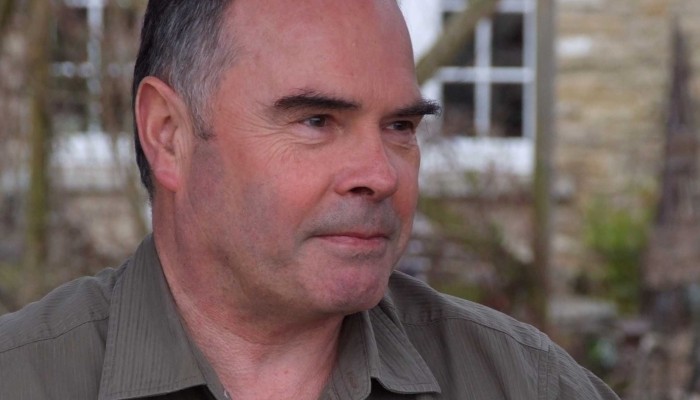
Mike Hough
Criminology of the Damned Questions
While the pandemic threat and lockdown policy have a lot of negative consequences and make our life unpredictable, unsafe, vulnerable and upset, in the current situation one can observe at least some positive impact – the compulsory isolation became not only a reliable remedy against the spread of disease but also a proper stimulus for philosophical inquiries and existential reflections.
ESC Newsletter Renewed
After careful deliberations, the ESC Board has decided last year to abandon the print version of the Newsletter. The decision offered the opportunity to have a fresh look at the Newsletter. Here is what has changed.
Executive Secretary Annual Report 2019
In 2019, the European Society of Criminology (ESC) reached new all-time records in terms of membership and participants to its annual conference. The number of members reached 1386, and 1433 criminologists attended the 19th Annual Meeting of the ESC, which took place in Ghent, Belgium, from 18 to 21 September 2019. During the conference, Tapio Lappi-Seppälä received the 2019 European Criminology Award, Kjersti Lohne the 2019 ESC Young Criminologist Award, and Maria Libak Pedersen the European Journal of Criminology Best Article of the Year 2018 Award. Six fellowships to attend the conference were awarded to young criminologists from Eastern Europe. The General Assembly elected Aleksandras Dobryninas as President-Elect, Olga Petintseva as At-large Board member, and Uberto Gatti as Auditor. The day following the General Assembly, Lesley McAra took office as President of the ESC, replacing Tom Vander Beken until the end of the next conference.
On Accepting the 2020 ESC Criminology Award
What I would like to do is to reflect on the changes that have occurred in the policy environment for criminal justice over the last 25 years. It is a game of two halves – I’ll start with an angry rant about the retreat from rationality and liberal values in countries seduced by right wing populism. After half time, I shall sketch out what I see as viable responses to this for criminologists keen to help shape policy. Inevitably, I will talk about the justice system I know best, covering England and Wales, but my analysis is, I hope, applicable more broadly across Europe.
Criminology in a Time of Pandemic
This is my last Presidential message at the end of what has proved a tumultuous year. The global pandemic has impacted almost every facet of our lives, and is likely to have far reaching consequences for education and research. In this message I am going to offer some reflections on the past twenty years of the ESC, and the challenges which the global pandemic currently poses for theory and method within criminology. The message will conclude with some thoughts about the implications of these challenges for the future of criminology as both an applied and theoretically informed field of enquiry.
Candidate for At-Large Board Membership: Fernando Miro
Given the proposal made for my nomination, and with the essential spirit of learning much more about criminology in Europe and to contribute my experience to what is required, I have decided to accept and apply to become a member of the ESC Board. If I am elected, I will work hard to promote the essential work of the ESC and to continue to advance towards their goals.
Candidate for ESC President: Catrien Bijleveld
I am a firm believer in and supporter of European criminology, and consider it a great and important achievement that we have this society and our European journal that is so widely read and highly ranked. The European conferences have grown immensely, not only quantitatively but also qualitatively, and are now at least as varied and interesting as the conferences we flock to across the pond, such as the ASC. It is very important that the European society is inclusive for all Europe, and for junior as well as senior researchers, and for that it is vital that young researchers assume prominent roles and tasks in our society and the journal, and that the society’s conferences are well accessible for researchers from less affluent European countries.’
Conferences & Workshops
Upcoming
Job Annoucements
PhD Research Fellow in Criminology or Sociology of Law on the Shadow Fleet
Oslo, N.A., Norway
Salary in position as Doctoral Research Fellow, position code 1017 in salary range NOK 550 800 – 595 000, depending on competence and experience. From the salary, 2 percent is deducted in statutory contributions to the State Pension Fund.
PhD scholarship
3 PhD Positions (4 years): Reconstructing Sentencing
Prague,, N.A., Czech Republic
Tax-free 40,000 CZK (€ 1,650) per month for 4 year
Full time
